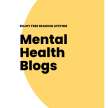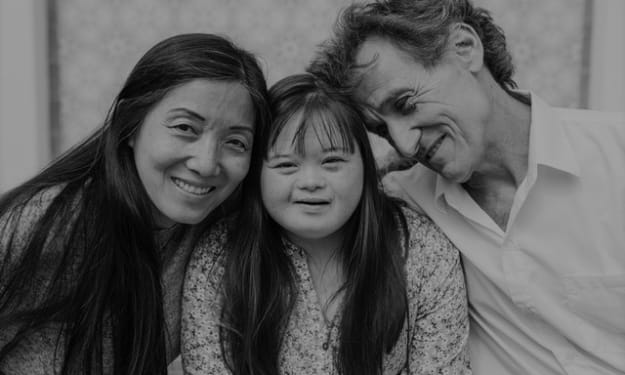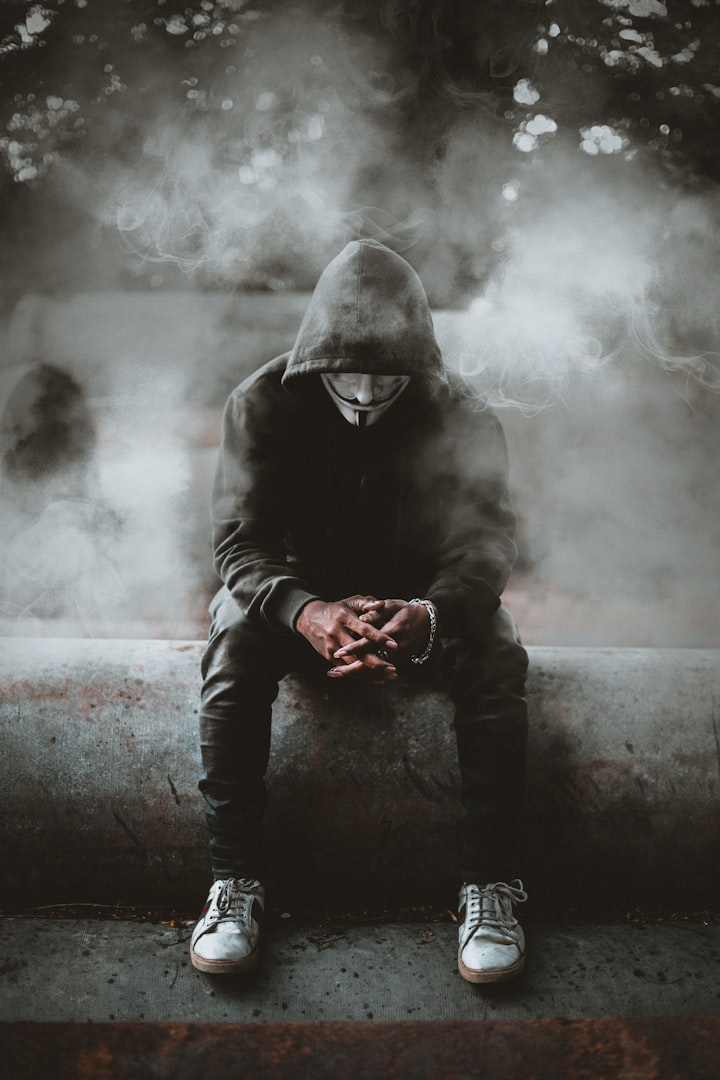My Uncle Had a Panic Attack
An incident taught me a myriad of things

I remember it was a rainy day in 2009, my uncle was driving a car and I was sitting next to him, we were going to Saharanpur from Dehradun. I wish I could drive but I didn’t know how to drive a car at that time, we both were enjoying the journey because the route went through a jungle full of greenery and unexpected sighting of wild animals. Suddenly He pulled over, I thought he saw something in the woods, I opened the window and was looking everywhere with excitement. I didn’t find anything, and suddenly I heard fast breathing, I looked in the side glass, and the sound increased, he was none other than my uncle.
He was facing shortness of breath, he was choking, I saw sweat on his forehead, He was trying to get something out his bag, his hands were not stable, they were shaking then he said I am suffering from chest pain, can you drive the car and give me medicine from the bag? I was stunned and said I don’t know how to drive. I didn’t know he was panicking all of sudden and I didn’t read or listen to panic attacks before; I thought it’s a cardiac problem. I helped him with available medicine in the bag; I got down and was trying to stop cars for help but nobody stopped. I was feeling helpless, that day I promised myself to learn to drive.
After some time the medicine worked and he called me, get inside the car, I can drive. I thanked god but the whole event was rushing inside my head. What if something happened? I could have taken him to a doctor on time if I knew driving. Finally, we saw a doctor and got all the reports done. The doctor said everything is normal, he went through a panic attack, and that was the first time I heard this term.
It’s always good to see a doctor in the first place until you don’t know it’s a cardiac problem or panic attack. As I promised myself, I learned driving. Now, I am a counselor psychologist by profession, and I turn back to the event which happened in 2009, I know it was a panic attack because out of 13 symptoms, he had 5-6 presented, which validates the fact as per DSM V and doctor advice the other day. I want to help you out with the symptoms, which will help you now or maybe in the coming future to identify them.
What are the 13 symptoms of a panic attack as per DSM V?
A. Recurrent unexpected panic attacks. A panic attack is an abrupt surge of intense fear or intense discomfort that reached a peak within minutes, during which time four (or more) of the following symptoms occur:
NOTE: The abrupt surge can occur from a calm state or an anxious state.
- Palpitations, pounding heart, or accelerated heart rate.
- Sweating
- Trembling or shaking.
- A sensation of shortness of breath or smothering.
- Feelings of choking.
- Chest pain or discomfort.
- Nausea or abdominal distress.
- Feeling dizzy, unsteady, light-headed, or faint.
- Chills or heat sensations.
- Paresthesias (numbness or tingling sensations).
- Derealisation (feelings of unreality) or depersonalization (being detached from oneself)
- Fear of losing control or “going crazy.”
- Fear of dying.
B. At least one of the attacks has been followed by 1 month (or more) of one or both of the following:
- Persistent concern or worry about additional panic attacks or their consequences (e.g., losing control, having a heart attack, “going crazy”).
- A significant maladaptive change in behavior related to the attacks (e.g., behaviors designed to avoid having panic attacks, such as avoidance of exercise or unfamiliar situations).
C. The disturbance is not attributable to the physiological effects of a substance (e.g., a drug of abuse, a medication) or another medical condition (e.g., hyperthyroidism, cardiopulmonary disorders).
D. The disturbance is not better explained by another mental disorder (e.g., the panic attacks do not occur only in response to feared social situations, as in social anxiety disorder; in response to circumscribed phobic objects or situations, as in specific phobia; in response to obsessions, as in obsessive-compulsive disorder; in response to a reminder of traumatic events, as in posttraumatic stress disorder; or in response to separation from attachment figures, as in separation anxiety disorder).
Few days after reaching home, my uncle said my heart was racing; I was losing control over consciousness and felt that I was dying. I didn’t know it all, but it’s meeting the diagnostic criteria. We can only see physiological changes but the feelings can be shared by the subject only. You must read the symptoms carefully and get professional help if you are in need.
One of the causes must be responsible for my uncle’s panic attack that also leads to a question:
What are the causes of a panic attack?
Panic attack causes may vary from repression, ego, defense mechanism, conditioning, cognitive distortions, environmental, physiological, and biological factors.
What are the treatments of a panic attack?
My story helps you to understand the symptoms of panic attacks. By the way, the story is real. It is important to gain knowledge about the panic attack as it is common among people. So, things start changing once you have an insight into a panic attack.
How you react to any fearful or unknown event determines your state. You don’t want a panic attack to stay around and knocks at the doorstep of your mind frequently. You want to live in peace, harmony, and a good state where you can work properly without interrupting these attacks. Let’s check the available treatments below:
- Psychotherapy: Psychotherapy is used either alone when anxiety is mild or in combination with drug therapy. There has been increasing use of CBT in the management of anxiety disorders, particularly panic disorders (with or without agoraphobia). CBT can be used either alone or in conjunction with SSRIs.
- Relaxation Techniques: In patients with mild to moderate anxiety, relaxation techniques are very useful. These techniques are used by the patient himself as a routine exercise every day and also whenever the anxiety-provoking situation is at hand. These techniques include Jacobson’s progressive relaxation technique, yoga, Pranayama, self-hypnosis, and meditation.
- Other Behaviour Techniques: Behaviour therapy include biofeedback and hyperventilation control. These methods are important adjuncts to treatment.
- Drug Treatment: The differential response of generalized anxiety and panic to drug treatment has led to what is called the pharmacological dissection of anxiety disorders through this differentiation has become much more diluted recently with antidepressants used in the treatment of both conditions.
How to STOP panic attacks with Hypnosis?
Why hypnosis can be so effective for anxiety-based conditions to know more and stop panic attacks just click here and listen to the preview of stop panic attacks and if you like it, you can buy it for peace of your mind.
About the Creator
The Psychologist Blog
I am a counselor psychologist professional, I blog about mental health in English & Hindi language.






Comments
There are no comments for this story
Be the first to respond and start the conversation.